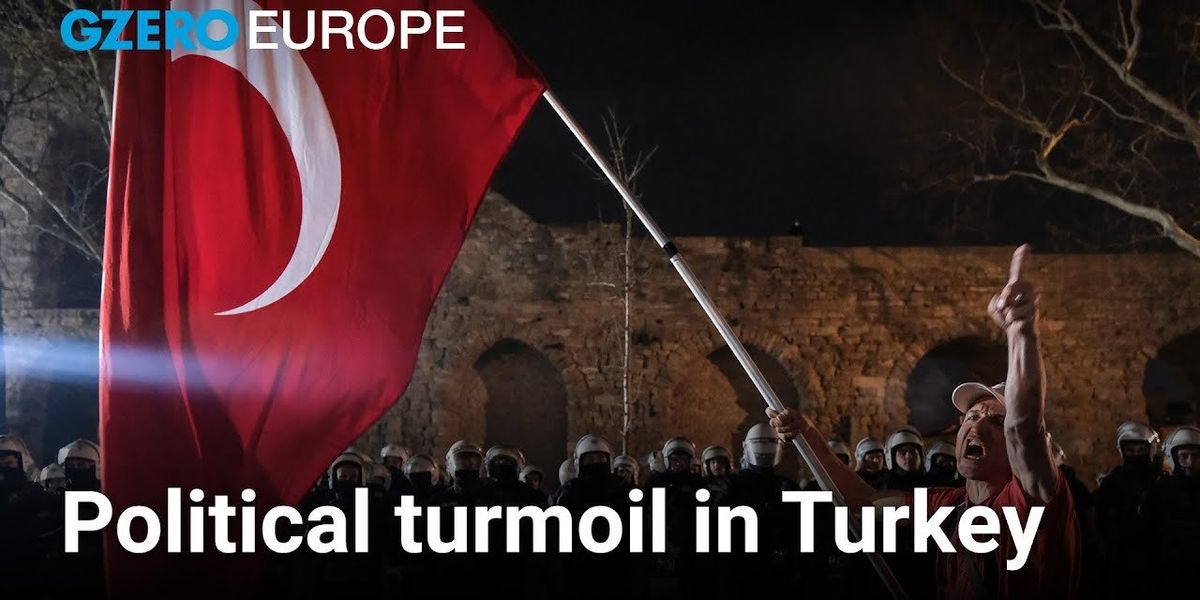Trending Now
We have updated our Privacy Policy and Terms of Use for Eurasia Group and its affiliates, including GZERO Media, to clarify the types of data we collect, how we collect it, how we use data and with whom we share data. By using our website you consent to our Terms and Conditions and Privacy Policy, including the transfer of your personal data to the United States from your country of residence, and our use of cookies described in our Cookie Policy.
{{ subpage.title }}
Turkey's protests & crackdowns complicate EU relations
Carl Bildt, former prime minister of Sweden and co-chair of the European Council on Foreign Relations, shares his perspective on European politics from Stockholm, Sweden.
Do you think the Signal controversy in the US will have an impact on the transatlantic relationship?
Well, not in itself. It does betray an attitude to security issues that is somewhat too relaxed, to put it very mildly. But what does betray as well is the disdain, the resentment, the anger against Europeans that is there from the vice president, the secretary of defense, and others, and that is duly noted. And of course, something that is subject of what we have to note it. It's there. It's a fact.
What impact do you think the Turkish protest and instability will have on Turkish relationships with its European allies?
Well, it's certainly not going to be a good thing. We have an interest in good relationship and stable relationship with Turkey. It's a significant EU strategic actor. It's a significant economy. But of course, when we have these arrests of a prominent opposition, politicians, we have massive protests that are repressed, that we have massive violations of social media and arrests of journalists and things like that. It does complicate things to put it very mildly. We haven't seen the end of that story yet.
U.S. President Donald Trump meets with Indian Prime Minister Narendra Modi at the White House in Washington, D.C., U.S., February 13, 2025.
In wake of the Signal scandal: Deflected blame and Transatlantic tensions
Waltz admitted Tuesday that the incident was “embarrassing” and said, “I take full responsibility. I built the group.” But top national security officials, including Director of National Intelligence Tulsi Gabbard, downplayed its significance in testimony before Congress on Tuesday, saying no classified material was shared in the unsecured Signal group — despite Goldberg’s assertion that plans were shared that, if intercepted by an adversary, could “conceivably have been used to harm American military and intelligence personnel.”
Congressional Democrats are calling for an investigation, and even their GOP counterparts admonished the chat as a “mistake” and urged the White House to “be honest and own up” to what happened.
Meanwhile, Europe – having been accused of freeloading by JD Vance and Pete Hegseth in the chat – is reckoning with what has become an irreparable rift in the transatlantic relationship. The UK government rejected the freeloading claim, highlighting that the planned airstrikes discussed in the Signal group were carried out with support from British refueling aircraft and that British troops have been fighting the Houthis alongside the US in the Red Sea.
What comes next? Despite the leak, the UK has stated that it will continue sharing intelligence with the US, but Eurasia Group expert Clayton Allen says it could “further incentivize European allies to plan for a future with uncertain US involvement.”
Congressional Republicans are unlikely to break from Trump’s stance and take further action against the officials involved. Meanwhile, Democrats will continue calling for an investigation and may be aided by Goldberg, who has said he may release the messages in the coming days if he can do so without compromising national security.
Allen says it will also fuel “speculation that this administration is learning as it goes and will amplify what has been private criticism of a somewhat ad hoc approach.”
